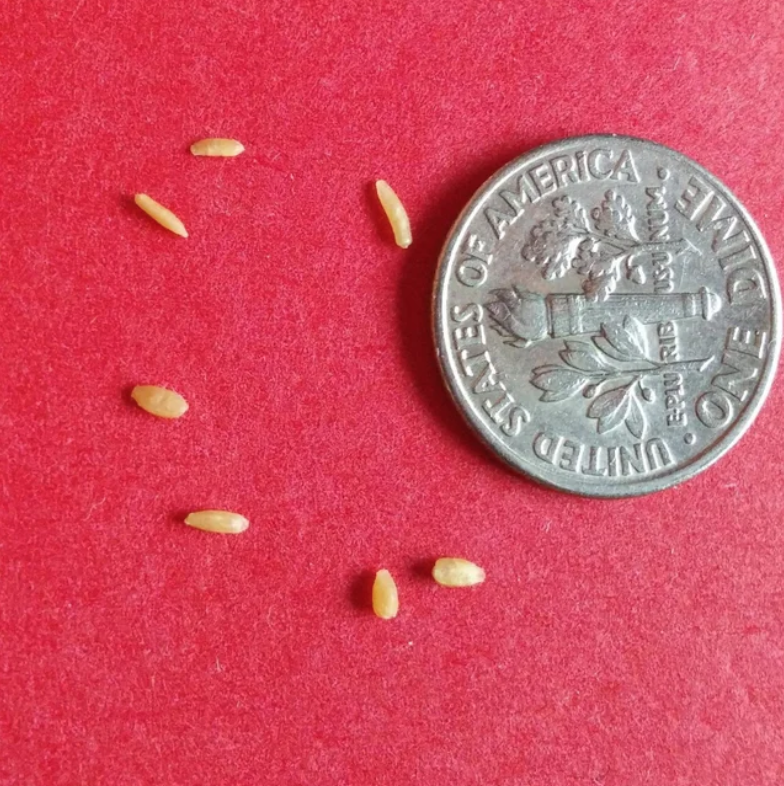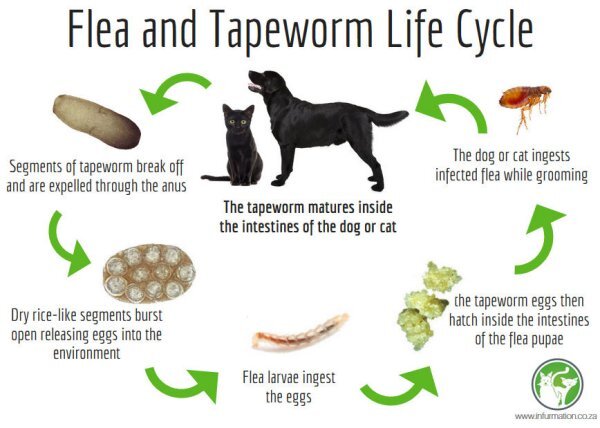Intestinal Worms in Dogs
Tapeworms
Description: A tapeworm is a long worm made of rice-like segments. As a tapeworm grows, small segments containing eggs will be released into your dog’s poop. These segments may also be seen around your dog’s bottom or in their bedding. They may look like moving pieces of rice or hard yellow specks, if they are dried out, they can stick to your dog’s coat.
Dogs or cats? Both can get tapeworms.
Symptoms: These may be visible in the poop, or around the anal area attached to the pet’s fur and look like little pieces of rice. Sometimes dogs with tapeworms may scoot their bottoms along the ground in an attempt to soothe irritation.
How pets get tapeworms: Tapeworms are an intestinal parasite that dogs and cats get by eating infected fleas or by eating wild animals infested with tapeworms or fleas. When your pet eats a flea infected with tapeworms, the tapeworm egg hatches and attaches to the dog’s intestinal lining.
Can humans get tapeworms? It is possible if a human eats an infected flea, this is most common in children. Read more from the CDC here.
Prevention/care: The most effective way to prevent tapeworms is to prevent the fleas. At the Pet Vaccination Clinic, we offer a few options to prevent fleas, ticks, and many other parasites from creating issues for your pet. If you find these rice-like worms in your pet, the doctor will administer an oral medication to eliminate these intestinal parasites, and prescribe a flea prevention routine.
More than just a nuisance for your dogs and cats, intestinal worms can also post a great health risk to your pets and family. Hookworms, whipworms, roundworms, and tapeworms are preventable, and easily treatable. Knowing the signs and symptoms for these four common intestinal worms can help you know when to call your veterinarian for a visit.
Common, general symptoms of intestinal worms can include:
Diarrhea
Vomiting
Weight loss
Poor coat appearance
Lethargy
Dehydration
Dark red or blue blood in the stool
Pot-bellied appearance
Dr. Leland provides compassionate care, taking the time to explain animal care thoroughly to clients so they can champion their pet’s health
Dr. Stan Leland opened Pet Vaccination Clinic on June 1, 1985. Since day one, Pet Vaccination Clinic has provided efficient and professional care without losing the personal touch. The Pet Vaccination Clinic is located at 1010 SW Military Drive in San Antonio, TX and offers multiple services including, but not limited to, vaccinations, flea and tick prevention, deworming, exams, health certificates, and heartworm preventative. Contact us here to make an appointment.
















